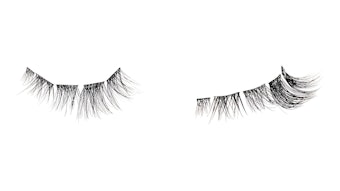
Dr. James Beckman, plastic and reconstructive surgeon, founder and CEO of Theraderm Clinical Skin Care, presents seven reasons why it’s so important to continue to a strict SPF regimen all year long:
- The Ozone Layer is Thinnest in Winter-Ozone production increases more quickly in warm temperatures and more slowly in cold. For this reason, the ozone layer is thinner at the earth’s poles where temperatures are very low, and the coverage is thinnest elsewhere around the globe during the colder winter months. That means even though the sun doesn’t feel as hot, you are actually exposed to greater-intensity UV rays.
- Even Indoor Lighting can Damage Skin-Even though we’ve been quarantining for nearly a year now, studies indicate that the light from computers, TVs, cell phone screens and even lamps and other types of indoor lighting may be adding to skin damage. Daily application of sunscreen will protect skin from damage caused by exposure to any light waves.
- Snow and Ice Reflect Sunlight, which Intensifies UVA/UVB Rays-Just as water intensifies UVA/UVB rays from the sun, snow and ice in the wintertime also increase the intensity of the sun’s rays and the risk for skin damage.
- Winter Weather Makes Sunscreen Wear Off Faster than Normal-Everyone knows that sweating, swimming or spending time at the beach in the heat of summer will make sunscreen come off more quickly. What many people don’t realize is that wind, snow, sleet and the low temperatures themselves all combine to weaken sunscreen, so you’ll need to reapply frequently for optimal protection.
- The Effects of Sun Exposure are Cumulative-The more time your skin is exposed to UVA/UVB rays over a lifetime, the greater your risk for skin cancer. Studies indicate that high levels of lifetime sun exposure are responsible for most cases of basal and squamous cell skin cancer.
- You’re Actually Closer to the Sun-If you live in the Northern hemisphere, then you’re actually closer to the sun in the winter months. The Earth is farthest from the sun in July and closest to the sun in January, causing more intense UVA/UVB rays that can adversely affect your skin.
- Sunscreen Expires. Use it Before that Happens-Most sunscreen begins to diminish in efficacy after just 12 months, so if you’re holding onto your tube of sunscreen to use next summer, you may find yourself getting burned more easily by the less effective sun protectant. Don’t hang on to that half-empty bottle of sunscreen until next summer. Use it up over the winter to keep your skin looking great!
*One sunscreen you can try: Theraderm Platinum Protection Facial Sunscreen SPF 43.











